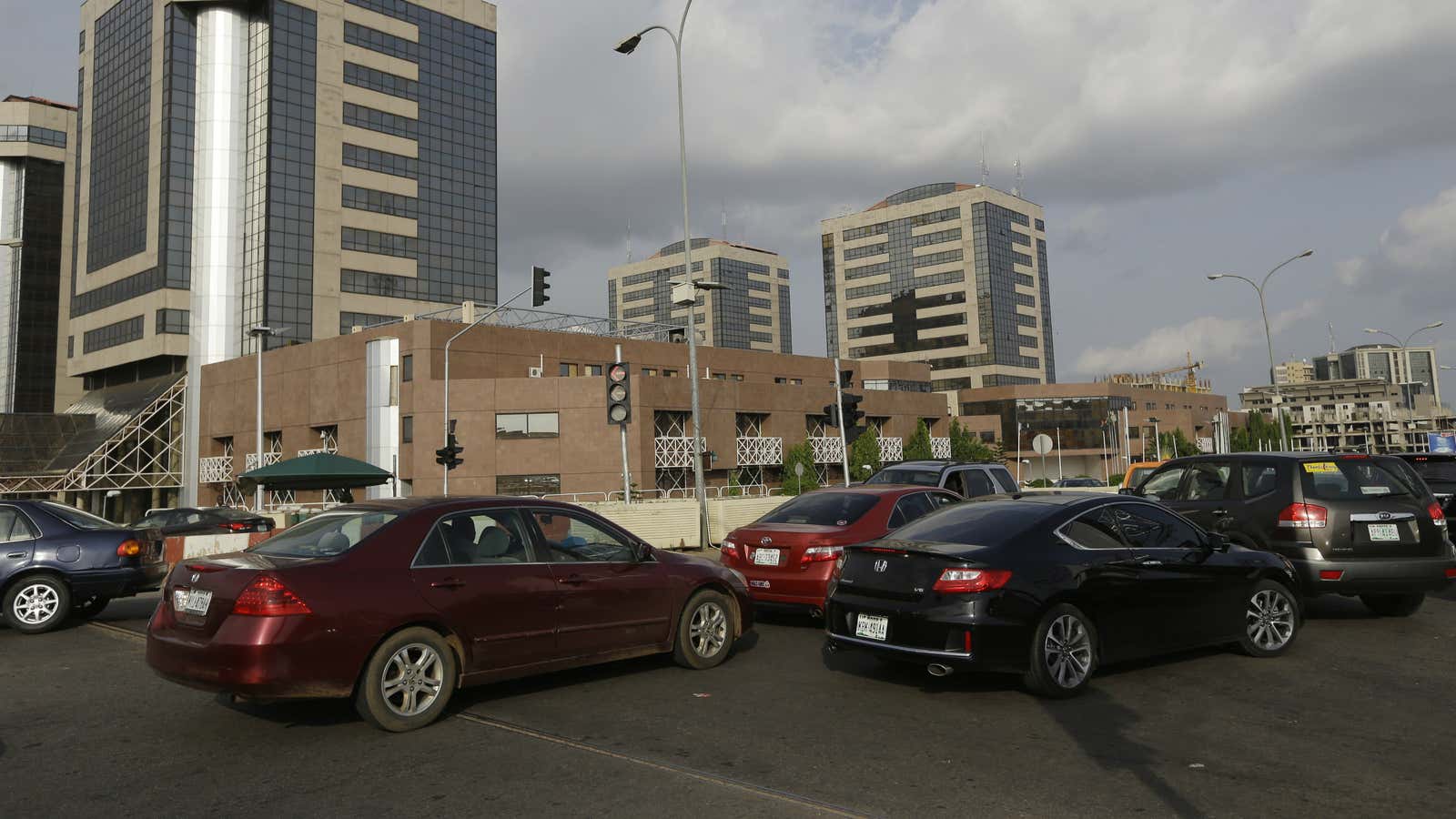The automobile market in Africa is projected to double over the next decade as the continent is the world’s second fastest growing market for new vehicles. This is largely thanks to factors such as a growing middle class, rapid urbanization and continued investment in infrastructure.
Some of the continent’s bigger economies have also drafted national automotive development plans to boost local car production and reduce second-hand imports. As such, more global car manufacturers are looking to set up shop on the continent. In Nigeria, for example, 30 car-makers, including giants Toyota and Honda, have obtained licenses to begin car assembly since the country’s automotive plan was approved in 2013.
But as these automobile makers scramble for a share of the continent’s $48 billion car imports market (pdf), emphasis must also be placed on operating in line with the sustainable development goals on the continent, says the Earth Security Group in its latest report.
Across many African urban centers, air pollution due to low fuel quality standards and fatal car accidents are a current reality. To make it safer to live in these cities and also to boost their share of the growing market in the long term, the report argues car makers must work with African governments on policies in line with the UN’s listed sustainable development goals (SDG).
The report lists some of the SDGs that are relevant to the automobile industry in Africa and identifies how car makers can do business while operating in line with these goals. To promote good health and well being, one of the listed SDGs, car makers should “invest in new mass-market models that include basic collision avoidance features,” the report recommends. Millions of new cars sold in Africa in 2015 “did not meet the UN’s basic safety standards for crash protection and avoidance,” the report says.
In the same year, 40 of the 50 countries with the highest road death rates across all ages were in Africa. Manufacturers that improve modern safety features in cars will likely see more patronage from potential customers among Africa’s growing middle-class.
Similarly, to mitigate the effects of climate change, another SDG, car makers “must work with national and regional governments to bring vehicle and fuel standards up to date,” the report says. This is particularly important as Africa’s global share of car exhaust fumes are on track to “exceed that of the US, EU and China combined” by 2030 (pdf).
